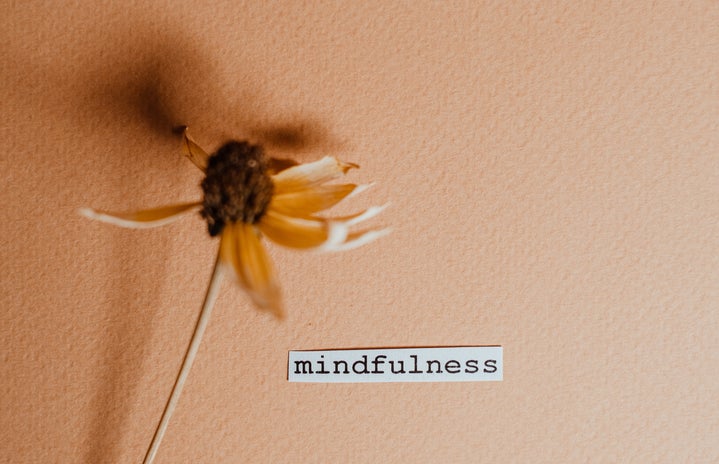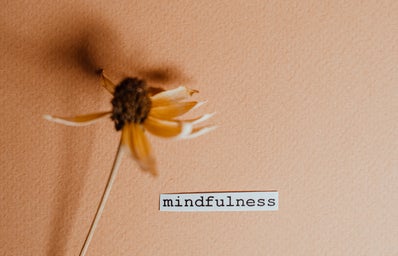I’ve seen and heard a lot about mindfulness skills on social media, but I’m not familiar with what exactly the concept is about. It was only when I received an email from Western about their upcoming wellness and well-being programs that I found out that mental health groups and workshops were currently being offered.
Western is offering workshops and groups about many topics exploring queer identity, lived experiences of students of colour, social anxiety, interpersonal effectiveness skills, and emotion regulation to name a few. I highly suggest checking them out here to view the extensive list of workshops they have available for students to register for! Many of them have caught my eye as I’m always looking to learn more about good mental health habits.
One of these included an introduction to mindfulness skills group. I signed up for the group and recently attended the first session. I was by no means an expert on the topic when I first walked into the room but as the counsellors facilitated the discussion, I learned a little bit more about what exactly mindfulness is all about:
- What is mindfulness? Mindfulness is essentially focusing on the present moment and intentionally living your life instead of letting your brain go on autopilot. Instead of obsessing over the past and future, mindfulness helps shift your focus back to the present. I thought this was interesting because sometimes I catch myself thinking about how stressed I am about assignments and lessons for my classes. That means I end up subconsciously blocking out the words that my instructor is saying in a lecture I’m already currently in.
- When can you practice mindfulness? The great thing about mindfulness is that you don’t need a lot of equipment, time or energy to practice it. It can be practiced anytime and anywhere, regardless of whether or not you’re doing anything else. All it takes is concentration in paying attention to what’s happening to you at the moment without avoiding, suppressing or judging it. This also fascinated me because I held the common misconception that mindfulness is something you need to make time for. I always thought you needed to dedicate a lot of time to practice effectively, but almost anyone can do it. Just because it looks different for everyone, but doesn’t make it any less effective.
- How can you practice mindfulness? Initially, I had a picture of mindfulness as a person sitting cross-legged on a yoga mat with their eyes closed and their hands in special meditation positions. I learned that while it may look like that for some people, there are also other ways you can participate in mindfulness that works best for you. Practicing mindfulness can include meditation and contemplative prayer to focus on the body’s sensations, thoughts, and emotions. You can also engage in mindfulness movement through yoga, martial arts, walking, hiking and more. To my surprise, I learned that there were many times that I was practicing mindfulness. I wasn’t even aware I was doing it until we talked about it together in the group. For example, I usually walk to the bus stop without using my phone and look out at the trees, front yards, buildings, and people I come across. All the times I took a few moments to myself, deliberately focused on the actions that I was carrying out, and blocked my worries just for a few minutes were when I was engaging in mindfulness.
- What benefits does mindfulness have in your own life? Mindfulness is actually a concept explored a lot in dialectical behaviour therapy (DBT), which is used to treat mental health disorders including borderline personality disorder (BPD), depression, PTSD, and schizophrenia. Research has shown that mindfulness has helped people cope better with mental health challenges of stress, anxiety, depression, and addictive behaviours. People learn to see the bigger picture of challenges in their lives, deal with the stressors of life in a healthy way, and become empowered to meaningfully contribute to society.
- How can you learn to incorporate mindfulness into your life? While some people don’t find mindfulness helpful, it ultimately depends on how much you decide to explore and apply mindfulness to your own life. You don’t necessarily need to be religious or spiritual in any way to include mindfulness in your life. If this sounds like something you might be interested in learning more about, I really recommend signing up for mental health workshops and groups offered at Western at this link here! There are many resources on mindfulness through online courses, books, podcasts, and more if you want to explore it further on your own.
Mindfulness has opened my eyes to the possibility of being present in the moment without overthinking. Being mindful of our thoughts and actions can influence our friendships, relationships, goals, dreams, and passions and help us enjoy life to the fullest without letting it pass us by.


